Top 7 B2B E-Commerce Platforms in 2020-s
In this article, we give a brief overview of the most popular B2B e-commerce platforms and their must-have features.

You can also listen to this article:
Intro
According to Forrester, by 2023 B2B e-commerce in the United States will reach $ 1.8 trillion. It will account for 17% of all B2B sales in the United States, and it will grow by 10% annually over the next 5 years.
This is not surprising. Modern young entrepreneurs want to freely purchase goods for their companies as if they are making purchases for themselves – on the Internet. They don’t want to get in touch with dozens of suppliers, talk on the phone with aggressive sales reps and be buried under a lot of paper documents. B2B e-commerce stores can save entrepreneurs from this.
The second, dramatic factor is the COVID-19 pandemic. Therefore, B2B e-commerce is becoming critically important.
In this article, we give a brief overview of the most popular B2B e-commerce platforms. If you plan to launch an online store, save this list to test e-commerce platforms and choose the one that suits your needs.
Must-have features of the right B2B e-commerce platform
The business-to-business segment has special requirements for e-commerce stores. A B2B e-commerce solution must have specific features to automate the purchase process for companies. Therefore, when choosing a B2B e-commerce platform, make sure that it has at least the following features:
Flexible pricing tools.
Companies usually buy many products at the same time and they do that regularly. It is important to offer your customers discounts on quantity and individual discounts depending on their level (and/or purchasing level). B2B e-commerce software should support user groups with various discounts and privileges.
Simple download and upload of price lists.
Before ordering, the manager must obtain approval for the list of products and prices from the manager. So, he/she should be able to quickly download and upload the price list with current prices.
A convenient way to order goods in bulk.
B2B e-commerce software should offer a convenient interface for bulk ordering. If the store does not have a convenient interface for this, you will spend too much time to fill the basket. Nobody likes to waste time, especially businessmen.
Convenient placement of the order.
Some entrepreneurs are simply not using buying goods for their companies through the interface of an online store. They usually call and order by phone. In such cases, your operator creates an order for them. It is important that he/she can do this quickly and easily being on the phone at the same time.
Reorder functionality.
What if the company regularly buys supplies from you? Do not force them to place an order every time they make purchases on your e-commerce site. The company should be able to reorder the same products with the same number of products in just one click.
Several shops per account.
For example, if you intend to sell both to companies and individuals, the function of several online stores is a must for your company’s website. You should be able to customize your storefronts independently as if you are managing several different stores.
Integration with accounting software.
You may have a need to send all your deals, each of them, or aggregated, to the accounting system you use. Make sure your B2B e-commerce system integrates with this software.
Organization inside a B2B e-commerce store.
Typically, more than one person is involved in the buying process in companies. So, the platform should provide the ability for several users from an organization. Thus, the administrator can add more users to the organization in the store: managers, marketers, accountants. And all of them can work with one account as different users.
1. Shopify
Shopify is a powerful cloud-based e-commerce platform. With a simple user interface and affordable pricing, starting from US$ 29/month, we believe they are best in class.

Shopify is founded in 2004, has 500K clients, who provided 1.6B revenue in 2019. Shopify received some criticism because most of the sellers which have accounts aren’t verified, so buyers aren’t protected by the provider in any way.
2. Magento
Magento is an open-source e-commerce platform. It has become one of the most popular e-commerce systems in the world, but one of the most complex. The company started with B2C software, and then was adapted for the B2B segment.
Magento is a very reliable platform, so you can customize it the way you want. This is a pros and cons at the same time. You can make your Magento-based B2B store extremely flexible and versatile, but you need a technically competent team of programmers to set up and support your store. And that means more expenses.
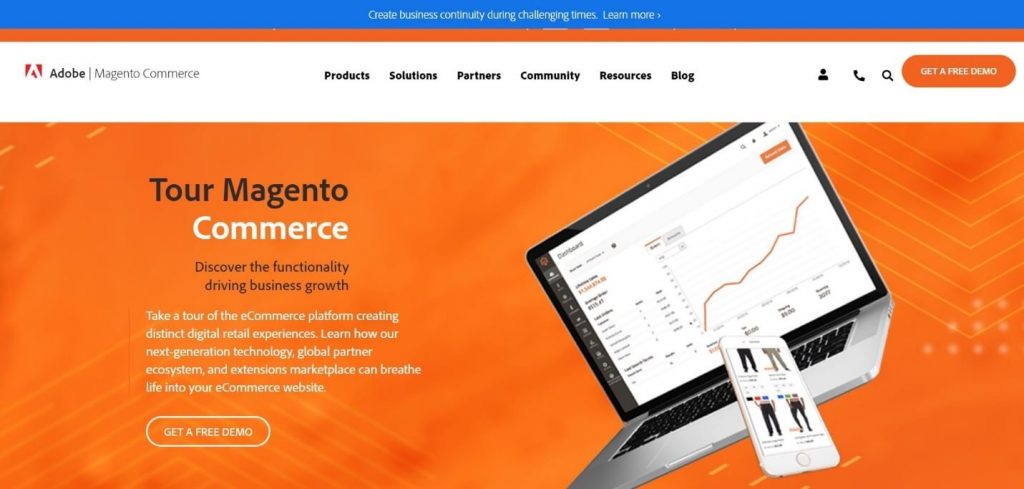
With more than 100,000 online stores using this platform, Magento is one of the market leaders. For B2B it has almost all the required features mentioned above, but, unfortunately, users complain about the complexity of the interface in Magento. Users also say that Magento takes a long time to set it up.
3. WooCommerce
WooCommerce is an open-source e-commerce plugin for WordPress. It is designed for small to large-sized online merchants using WordPress. Launched in 2011, the plugin quickly became popular for its simplicity to install and customize and free base product.
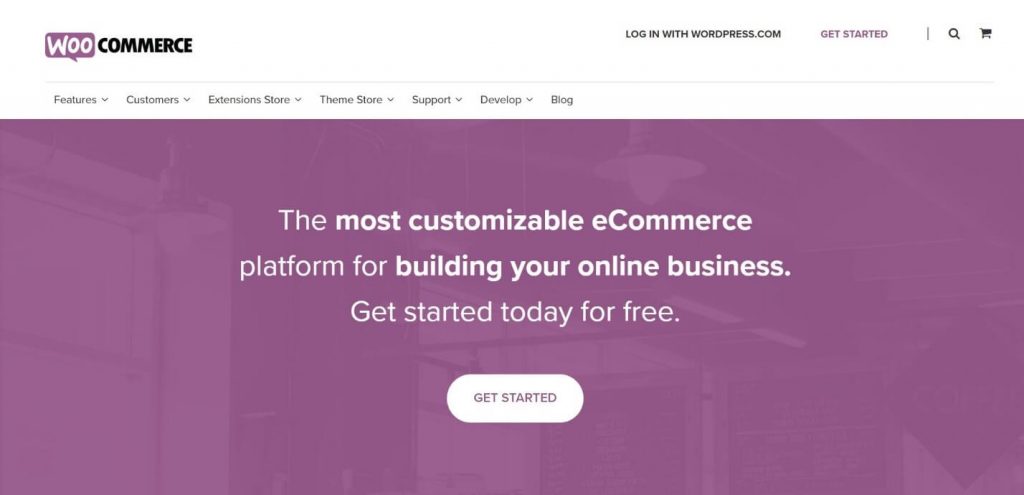
WooCommerce is a rapidly growing community with over 40 million downloads as a plugin and is currently active on more than three million websites. WooCommerce is probably the most popular eCommerce platform.
4. Amazon
Amazon was founded in 1994. It is considered one of the Big Four tech companies, along with Google, Apple, and Microsoft. The company initially started as an online marketplace for books but later expanded to sell electronics, software, video games, apparel, furniture, food, toys, and jewelry. In 2015, Amazon surpassed Walmart as the most valuable retailer in the United States by market capitalization.
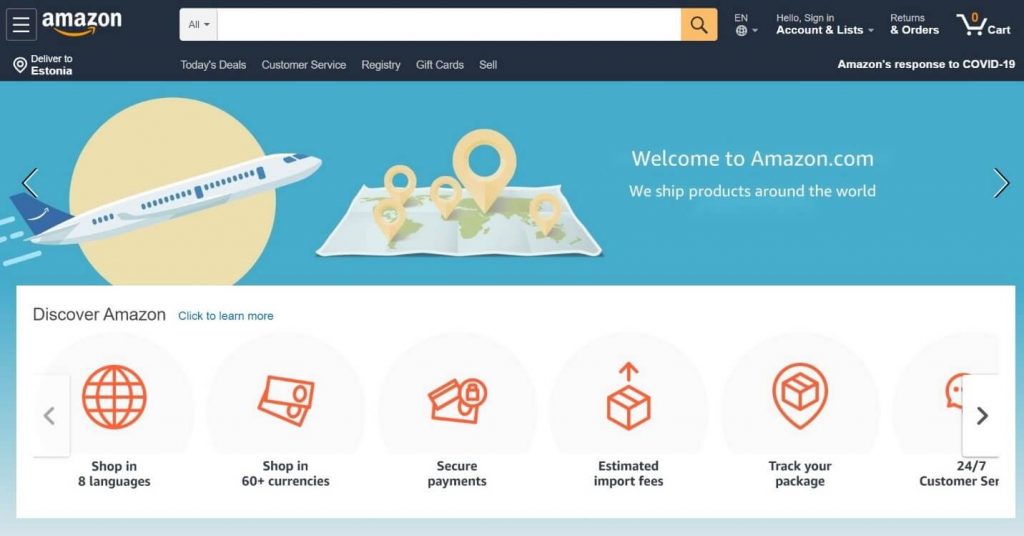
Amazon derives many of its sales from third-party sellers who sell products on Amazon. Sellers link up directly to their Amazon selling account. Via powerful API it is possible to sync up products, customers, stock and sales seamlessly in real-time, with automatic order processing and stock updates as they happen.
5. BigCommerce
BigCommerce is a cloud-based e-commerce platform. Its features include customer groups and segmentation, search engine optimization (SEO), web hosting, and more.
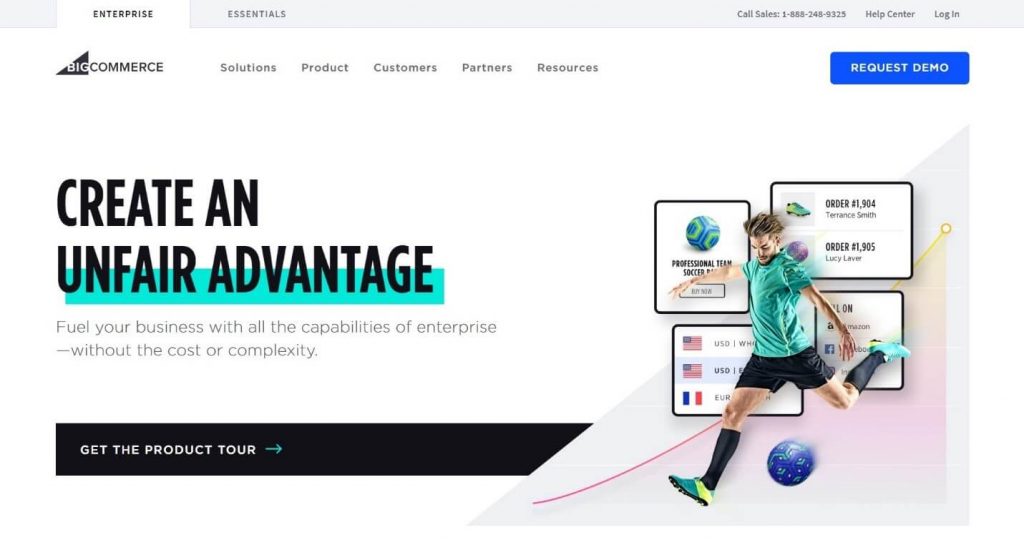
BigCommerce, created in 2009, is much simpler than Magento, but it still takes some time to learn due to the complexity of the function. Rich documentation helps beginners to learn the platform. Users say that BigCommerce is a great solution only for beginners and small businesses, for example, because you cannot have several e-shops with one account.
6. CS-Cart B2B & B2C
CS-Cart is B2B e-commerce software for wholesalers and manufacturers of any size. The platform was released in 2005, and now it supports more than 35,000 B2C and B2B e-commerce sites around the world. CS-Cart focuses on versatility and ease of use.
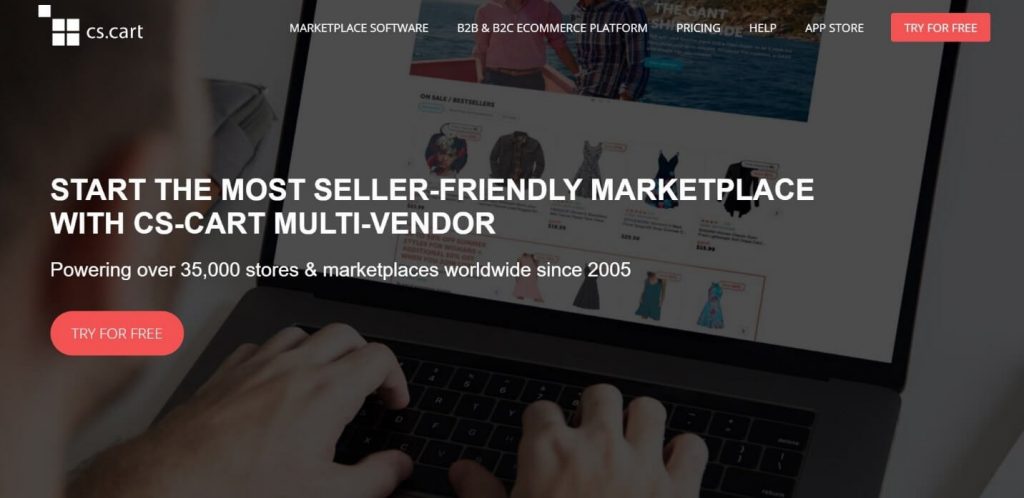
CS-Cart is a stand-alone B2B e-commerce script, which means that installing it on a server requires technical knowledge. To facilitate deployment, CS-Cart offers detailed documentation with installation instructions and server requirements. Being a self-hosted platform, CS-Cart gives you complete control over your e-commerce online store. You own it, not rent it.
7. PrestaShop
PrestaShop is a freemium open source e-commerce solution. The software is published under the Open Software License (OSL). PrestaShop has over three hundred built-in functions for managing the list of products, payments, delivery, manufacturers, and suppliers. PrestaShop uses a web template system that allows users to customize store themes and add new features with additional modules.
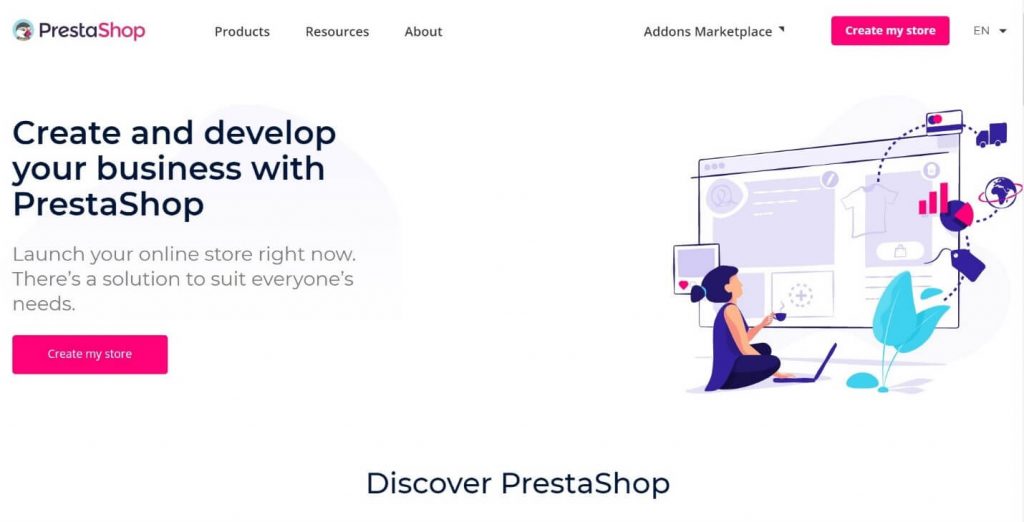
Created in 2007, PrestaShop is currently used by 300,000 shops worldwide and is available in 60 different languages.
What Now?
Choosing e-commerce software for your business-to-business webshop is an important step towards establishing a convenient and effective sales channel for your business clients.
There’s no perfect platform, so we recommend starting with easy to use cloud-based platforms. You will avoid serious investments in software and hardware at the beginning. Avoid platforms, where you cannot upload your initial data from Excel files, or via integration and test thoroughly during the free trial period.



